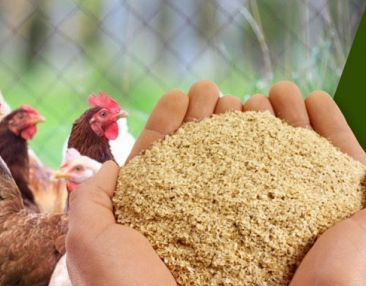 Scientists of the Institute of Nuclear Physics (INP) of the Siberian Branch of the Russian Academy of Sciences and the Institute of Experimental Veterinary Medicine of Siberia and the Far East have extended the shelf life of mixed fodders to one year by means of electronic pasteurization, the head of the laboratory of the Institute of Nuclear Physics of the Siberian Branch of the Russian Academy of Sciences Alexander Bryazgin told Tass. This will make it possible to develop poultry farming in the Arctic - feed can be transported along rivers during northern deliveries.
Scientists of the Institute of Nuclear Physics (INP) of the Siberian Branch of the Russian Academy of Sciences and the Institute of Experimental Veterinary Medicine of Siberia and the Far East have extended the shelf life of mixed fodders to one year by means of electronic pasteurization, the head of the laboratory of the Institute of Nuclear Physics of the Siberian Branch of the Russian Academy of Sciences Alexander Bryazgin told Tass. This will make it possible to develop poultry farming in the Arctic - feed can be transported along rivers during northern deliveries.
"The Institute of Experimental Veterinary Medicine is interested in increasing the shelf life of mixed fodders - thus they can be delivered to remote Arctic territories and grow a poultry there. We increased the shelf life to one year," said Bryazgin. According to the scientist, the poultry breeding in the North is now difficult. "This is impossible now, because the feed is not stored for a long time, and the northern delivery is limited by summer terms, so the suppliers are forced to transport frozen chickens there," he added.
Bryazgin noted that there are no legislative obstacles to irradiating feed for pasteurization. Only the interest of producers is required.
Source: agrorus-news.ru.

